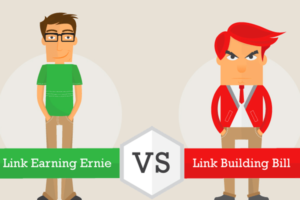Content Attributes
Every SEO knows that he has a specific goal in his work: to optimize the website to make it go up in snakes as much as possible. This is a complex, long and constantly updating job: you never stop working to make the site better and optimize it as best as possible. There is one thought: if you overuse an SEO over optimization strategy. You don’t just address the failure to position the site, but you can encounter the dangerous penalties from over-optimization.
Whats is SEO Over Optimization?
In fact, if Google notices suspicious “magheggi” or redundant optimizations on a website, it may decide to penalize it, so as not to allow it to ‘play dirty’ and thus reach the first places in the search engine.
The over-optimization consists of the excess of the use of SEO techniques to position oneself on search engines, such as the abuse of internal links, the keys, or the use of a single anchor text. They are not prohibited techniques (such as the black hat ) but they are lawful techniques that have been abused.

The problem of over-optimization is a concrete problem for SEOs and can lead to very important damage to the site, and a waste of the work done up to that moment. Consequently, it is good to try not to run into the penalties of Google, and to avoid doing so, one must know which behaviors are generally connected to an unpleasant consequence such as a punishment.
Here are some of the behaviors that according to Google can make you think of an over-optimization.
Penalizing behavior: knowing them to avoid them
- A first behavior that Google doesn’t like is the over-optimization from internal links. This is the condition whereby the website has many internal links. Almost all of them often towards a single page, and with anchor text with the same key or similar key. Google penalizes this behavior because of it generally contrived.
- Abuse of keywords, or keyword stuffing. In this case, the unnatural, repeated and illogical repetition of the keyword leads to a penalty by Google. This consequence is likely even where the key inserted in the meta tags continuously. You should always avoid over-optimization by keyword and try to set SEO more patient or the results can be harmful: Google simply considers them spam.
- Use of unnatural backlinks and anchor text. On this topic there is really a lot to say, I will not go on and I refer you directly to the article on the backlinks published a few weeks ago.
- Automatic and over-optimized content, not designed for the user, are some of those that Google does not tolerate.
- Forcing the keyword. Beyond keyword stuffing, Google nevertheless notices when there is a tendency to force a keyword. For example in the page title, in the headings, in all paragraphs. In the titles and subtitles, in the internal links, in the URLs of the image tags. Use synonyms and change or you risk an over-optimization penalty.
- In general, poor quality content and full of grammatical errors or too short. The classic example of a website filled with useless, short, unoriginal, hackneyed content, maybe just to place a few keywords. By now Google’s algorithms are aware of the quality parameters of an article and also take these elements into account. So, be careful because maybe it does not penalize but certainly does not reward, indeed.



